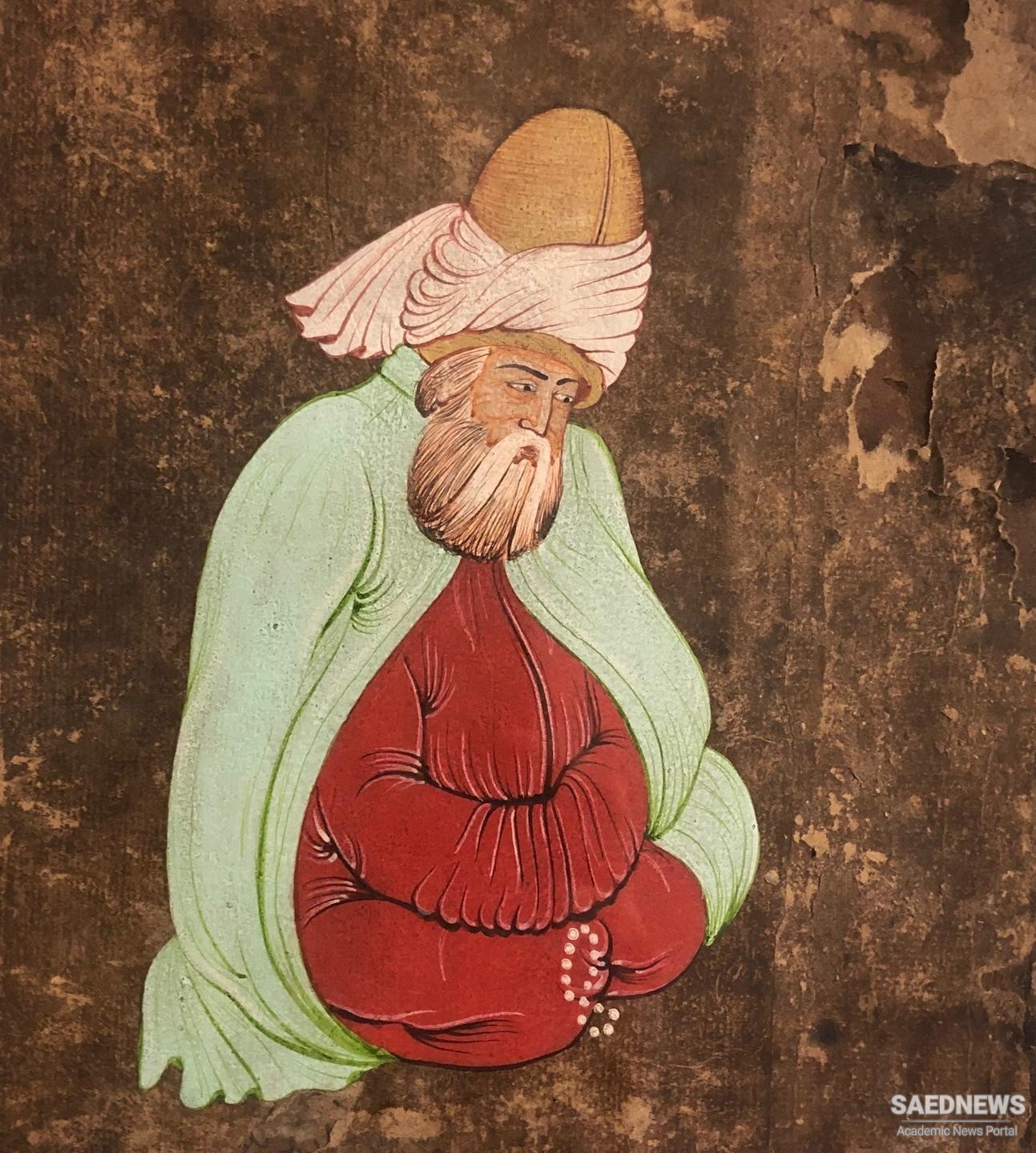That same year the great Andalusian Sufi Master Ibn 'Arabi arrived in Konya while on a pilgrimage to Mecca. He stayed in Konya a year and taught Shard al-din who became his closest disciple and was to be the link be- tween Arabi's works and Jellal-ed-din Rumi. For sixteen years Baha'u'ddin Walad and his family travelled, passing through Mecca, Damascus, Arzanjan in Armenia and Laranda where Rumi was married. It is said when the travellers passed through Nishapur they met the Sufi poet and mystic Faridu-ddin Attar who gave the young Rumi a copy of his "Book of Mysteries", and his blessings. Finally they came to Konya where they settled and his father became a professor under the royal patronage of Anatolia. Baha'u'ddin Walad died in 1228 and his son Rumi, who was a great student of theosophy, became professor and attracted several hundred students to his classes. His environment was always one of learning before and after inheriting his father's library and position. In 1230 Burhan al-Din Muhaqqiq a close friend and disciple of Rumi's father came to Konya. He was a true dervish who had lived in solitude in the mountains in a state of mystical ecstasy. Upon his arrival in Konya Burhan was informed that his friend and teacher had been dead a year. He decided to stay and devote his life to the spiritual training of Jellal-ed-din Rumi. For the next nine years Rumi was initiated into the Sufi doctrine. He journeyed to Aleppo and Damascus with his teacher. At the death of Burhan in Kayseri Rumi collected his teacher's books and papers and returned to Konya to teach its youth.
In 1244 Shamsi Tabriz arrived in Konya. He wore an old, patched, black wool cloak and had no possessions. Sometimes Shamsi was called Parinda or winged one, be- cause he had wandered in many lands seeking spiritual teachers. When Shamsi met Rumi he took his books and threw them in a pool of water saying "Now you must live what you know." When a disturbed Rumi moved to save his books Shamsi told him that the theoretical knowledge in his books was meaningless but if they meant so much to him he could remove them from the pool and they would be dry. Rumi declined and the two men embraced. To the jealousy of Rumi's students, who referred to him as Mevlana (Our Master), the two merged as one being in the fatherhood of God. Rumi was the teacher, the prophet, and Shamsi the enigmatic catalyst who knows and knows that he knows.
The two men were in like of God. They became their own planet. Rumi, the earth, his function to uplift the consciousness of man, revolving around and finally merging with Shamsi, the Sun. This is the ecstasy spoken of by the Sufis —to lose oneself in God-consciousness. Rumi once told of the death of Al Hallaj, the great Sufi saint. Al Hallaj had claimed that he was the Truth and the people had dismembered his body. Rumi then said that if he told what he knew his body would be chopped into small pieces. When it is found out that one knows the Truth, the payment is dear. For Shamsi the payment for Knowledge was his head. For Rumi, the mystic, it was the knowledge that no one was prepared to receive his secret and he would die with it still in his heart. Caught in the jealousy of losing the interest of their beloved teacher, the students of Rumi could not lift the veil of ignorance to ask themselves what it was that these two God intoxicated men did for one hundred and one consecutive days which caused them to have cosmic ef- fulgence, to emanate such peace from the depths of their beings, to leave their worldly attachments, and how man can reach this state so necessary for his inner growth and yet so distant from his earthly reach.


 The Story of a Loss Leading to the Birth of a Great Work of Art
The Story of a Loss Leading to the Birth of a Great Work of Art














































